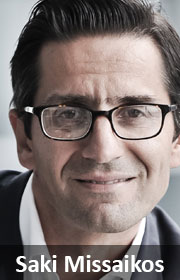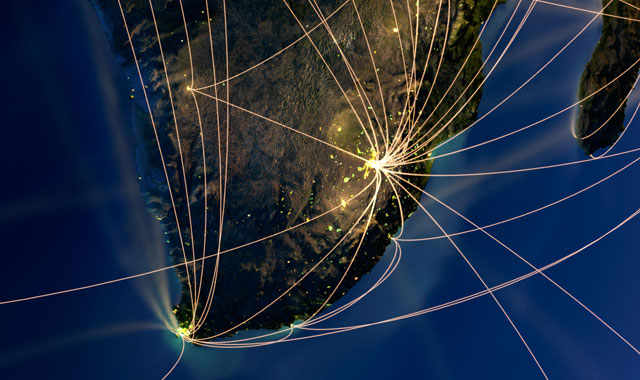 One hundred and seventy-seven pages. That’s the length of the national integrated ICT policy white paper. On page 8, we are told that its “core philosophy” a move to “openness”: open access, open Internet and open government.
One hundred and seventy-seven pages. That’s the length of the national integrated ICT policy white paper. On page 8, we are told that its “core philosophy” a move to “openness”: open access, open Internet and open government.
If “open” is what the government is asking for, then the ICT industry needs to be “open” and honest.
We need to be honest about the agendas each of us is pushing either individually or collectively, and open about the reasons why. Flip-flop lobbying is destructive, delaying and deplorable. I say deplorable because lobbying is inevitably about the individual good, with the aim of securing the necessary concessions that benefit an organisation and result in shareholders dancing on the rooftops.
The fact is that we — and when I say “we”, I mean mobile operators, wired and wireless operators, Internet service providers, broadcasters, over-the-top players such as streaming and messaging services, manufacturers and so on — need to get our act together. “We” is all the players in the ICT sector and we are failing South Africa and failing South Africans.
It is easy to blame the government and authorities. Yes, they are easy targets but they are also legitimate targets. They do not appear to be acting in the best interests of the country, and are not understanding that all this dilly-dallying is making their “inclusive and prosperous” society seem more a figment of the imagination, rather than the reality it can and indeed, should be.
What is the barrier to getting a great ICT policy agreed and executed? It is because we all have our own protectionist strategies, to safeguard our market share, our revenue and our profits. Most readers will think this is fair enough given that we operate in a capitalist economy. But it is not fair. And that is the point. All of us must play our part in building a fair industry, even if we acknowledge that we are operating in an unfair society. Fairness can — and should — start with us. If you are asking why us, then just ask yourself why not us?
While we all want to protect our companies and deliver the growth our shareholders demand, we need to look long term, and we need to ask ourselves what is fair and what is right.
This is 2017. There is no longer a place for the traditional, the secretive, the self-serving and the greedy. If the “inclusive and prosperous” society government has said is to be a reality by 2030, we have no choice but to act for the collective good.
This means that we all need to make some individual sacrifices; to concede on all those self-serving points of order we are insisting be removed or added to the policy framework. If we are honest, these are mostly about “us” and not about the country or our customers, or citizens. Consumers are frustrated with pricing, accessibility and availability of broadband. South Africans are tired of the constant delays, inadequacies and ineptitude shown by industry bodies and government.
It is time for “openness” to be an alternative? The sacrifices I am talking about will be financial. This is going to be a tough one for companies to stomach, especially those that have for decades enjoyed extortionate (word used for emphasis not as judgment) profits. Those decades are in the past, and over the past few years this reality has probably hit home for those who enjoyed unprecedented growth in the early years of the Internet and mobile communications. I include Internet Solutions in this.
Make no mistake: there are major flaws in the policy white paper, and these must be debated and resolved. But what must also happen is that we — all stakeholders and government — must define a framework that is about the end user, and not us. Of course, it must address commercial viability. The communications industry has a major impact on jobs, innovation, social inclusion, world trade, health and education.

Without a strong and fair commercial model, the infrastructure investments required to keep up with technological advancements will stall, and this will impact our ability to participate in the global economy, create jobs, stimulate growth in our economy and build a fully inclusive, participatory society.
Without the Arpanet, the Internet we know today wouldn’t exist. Arpanet was a network that had to connect four computers running four different operating systems. To get the computers to communicate with each other, without crashing the system, the team came up with set of rules that the network had to follow. These rules enabled the computers to communicate.
Our industry is now a lot of separate parts that need to work together. Surely as an industry we can agree the rules without crashing the country or killing companies. I know we can come up with solution that is about what’s best for the country and leaves individual gain to one side.
The industry boundaries that once defined ISPs and network operators have been eroded. All are now Internet providers or communication providers.
However, not all were born with the same DNA. The Internet was built on the principles of an open, unfettered system that would facilitate collaboration to create better ways of doing things. “Open” is the critical world here, one that is used repeatedly in the ICT policy white paper. The Internet would allow any person to share information with anyone else, affordably. Affordability is, of course, a subjective thing, especially in South Africa.
ISPs were motivated and inspired by these principles. For many years, they fought the restrictive, uncompetitive, biased regulations that favour organisations with the biggest wallets and the best lobbyists, and have pushed for regulations that give the best deals to consumers.
The egalitarian principles of the Internet must be upheld, and we must not even attempt to replicate the big paydays of the past that many operators enjoyed. This would be to the detriment of the country. Rather, we must have sensible regulations that support investment, assist in the building of sustainable businesses and that deliver acceptable shareholder returns. Communication is a business and business needs to be supported.
To get to a position where South Africa can move forward and reap the benefits of ICT, we must all be “open” in the same spirit that the government has published the ICT policy white paper: open to accelerating our debate; open to alternatives; open to not having the biggest pile of cash on the table; open to building a fair industry and delivering fair services to helping create a fairer society.
- Saki Missaikos is MD of Internet Solutions

